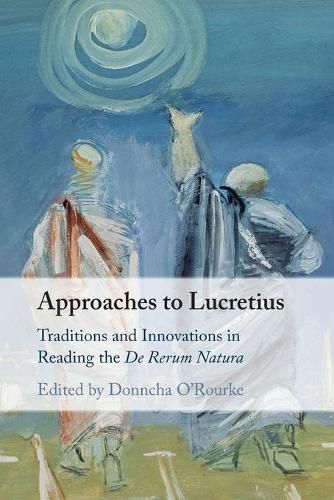Readings Newsletter
Become a Readings Member to make your shopping experience even easier.
Sign in or sign up for free!
You’re not far away from qualifying for FREE standard shipping within Australia
You’ve qualified for FREE standard shipping within Australia
The cart is loading…






Both in antiquity and ever since the Renaissance Lucretius’ De Rerum Natura has been admired - and condemned - for its startling poetry, its evangelical faith in materialist causation, and its seductive advocacy of the Epicurean good life. Approaches to Lucretius assembles an international team of classicists and philosophers to take stock of a range of critical approaches to which this influential poem has given rise and which in turn have shaped its interpretation, including textual criticism, the text’s strategies for engaging the reader with its author and his message, the ‘atomology’ that posits a correlation of the letters of the poem with the atoms of the universe, the literary and philosophical intertexts that mediate the poem, and the political and ideological questions that it raises. Thirteen essays take up a variety of positions within these traditions of interpretation, innovating within them and advancing beyond them in new directions.
$9.00 standard shipping within Australia
FREE standard shipping within Australia for orders over $100.00
Express & International shipping calculated at checkout
Both in antiquity and ever since the Renaissance Lucretius’ De Rerum Natura has been admired - and condemned - for its startling poetry, its evangelical faith in materialist causation, and its seductive advocacy of the Epicurean good life. Approaches to Lucretius assembles an international team of classicists and philosophers to take stock of a range of critical approaches to which this influential poem has given rise and which in turn have shaped its interpretation, including textual criticism, the text’s strategies for engaging the reader with its author and his message, the ‘atomology’ that posits a correlation of the letters of the poem with the atoms of the universe, the literary and philosophical intertexts that mediate the poem, and the political and ideological questions that it raises. Thirteen essays take up a variety of positions within these traditions of interpretation, innovating within them and advancing beyond them in new directions.